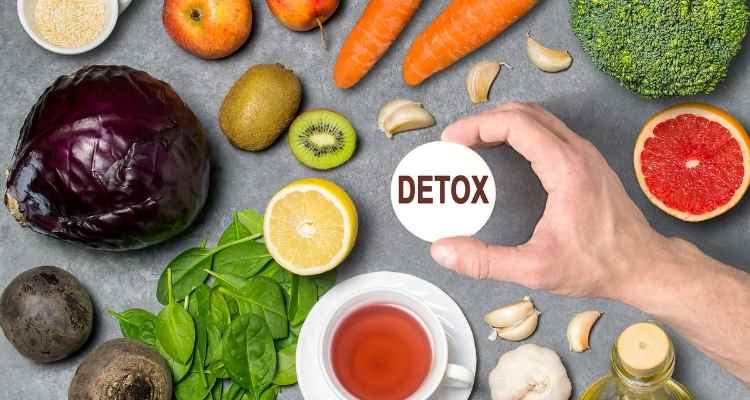Detoxification – or “detox” – is a process of abstaining from unhealthy substances. When you undergo this regimen, you are expelling the toxins that have accumulated in your body.
Following detox diets is known to improve overall health. Some also perform a detox for weight loss. But how does it work exactly? And what happens when you do a detox?
Here, you will learn the basics of detoxification, with a particular focus on the six foods you should be incorporating in your detox diet.
What Happens When You Detox?
Before anything else, know this: The human body is well-equipped to perform a detoxification process to get rid of toxins on its own. Anyone claiming otherwise doesn’t understand detox well.
That said, cleansing programs are made to enhance your body’s natural detoxification system.
Many detox programs often involve probiotics, laxatives, herbal teas, vitamins, minerals, and superfoods with detoxifying properties. This helps make the process go more smoothly by ensuring your health and the optimal function of those involved in the process, specifically the following:
- Digestive system
- Liver
- Kidneys
- Lungs
- Skin
Only when these organs are healthy and functioning correctly can they efficiently expel unwanted substances from your body. This means that, while detox diets don’t necessarily do all the work, they ensure that the body does the work without any trouble.
6 Foods That Support Detoxification
You can do many things to help improve your body’s capacity to get rid of toxins, and one of them is watching what you eat. Certain foods help with the detox process, including:
1. Lemon
Based on a 2014 study from the Journal of Medicinal Food, the citric acid in lemons prevents stress-related damage (oxidation) and ensures liver function.
Another research from the same year – this time published in the Journal of Nutrition and Metabolism – discovered that consuming lemons also aids in blood pressure regulation when done with daily walking.
This may be why many detox diets and programs include lemons – or, to be more specific, lemon water. Besides being effective, it is also very easy to make. Simply squeeze fresh lemon, mix it in a glass of water, and drink.
A word of caution: Avoid brushing your teeth immediately after drinking acidic beverages like lemon water as doing so could compromise your teeth enamel. You can also avoid this by drinking lemon water using a straw and rinsing your mouth with water immediately after.
2. Cruciferous Vegetables
Deemed some of the healthiest foods on the planet, leafy greens and cruciferous vegetables effectively optimise your body’s detoxifying capacity. Some examples of this are:
- Broccoli
- Cauliflower
- Cabbage
- Brussels sprouts
- Bok choy
Based on the research posted in the Evidence-Based Complementary Alternative Medicine journal in 2015, cruciferous vegetables support liver health with their anti-inflammatory, antiviral, and anticancer properties. And because they are also rich in fibre, consuming these veggies regularly encourages toxin excretion through bile and stool as well.
Dandelion greens and spinach – two of the veggies included in the group – are also rich in the detoxifying plant pigment known as chlorophyll.
Research found as well that broccoli contains enzymes that protect against cancerous chemicals. It is also believed to improve the body’s defences against air pollution.
3. Probiotics
When it comes to detox, the condition of your gut health is vital.
You see, your intestinal cells are responsible for secreting chemicals and other harmful toxins to keep you healthy. Because of this, you need enough good bacteria for your gut health.
Good gut health begins with prebiotics – a type of fibre that feeds the existing probiotics in your gut. These allow good bacteria to produce fatty acids that are beneficial for your health.
In many cases, good and bad bacteria in the gut come to an imbalance due to antibiotics use, diet quality, and poor dental hygiene. This unhealthy shift weakens both the immune and detoxification systems, thereby increasing your risk of inflammation and disease.
You can get your prebiotics supply from the following foods:
- Tomatoes
- Artichokes
- Bananas
- Asparagus
- Onions
- Garlic
- Oats
4. Garlic
Besides being an excellent source of prebiotics, garlic in itself is also a powerful detox food.
Despite its strong, off-putting odour, this kitchen staple has antibacterial, antiviral, and antibiotic properties. It also contains the compound allicin that supports the production of white blood cells which, as you may already know, are the antibodies that defend against infections.
If you want to get the most benefits that garlic can offer, then you must consume it raw. To make it easier to take in, try crushing and tossing it into a salad dressing.
5. Fresh Fruits
Fresh fruits are also vital for detoxification as they contain lots of antioxidants, vitamins, and minerals that aid in digestion. Fruits are also known for their revitalising effect on the skin and hair.
You have a wide selection of fruits you can eat, but when it comes to detoxification, acidic fruits like the following are your best bet:
- Grapefruit
- Pineapples
- Oranges
- Tomatoes
Adding fruits to your diet should be very easy. You can consume them raw or make them into fruit smoothies.
6. Seaweed
Did you know that seaweeds are also great for detox? Dulse, nori, kelp, wakame, and agar – all these dietary staples in Asia contain plenty of iodine for thyroid hormone production.
Some seaweeds, like arame and hijiki, also have soluble fibre that promotes intestinal movement, making it easier for your digestive system to get rid of toxins and heavy metals from your body.
Help Your Body Detox Naturally
Detoxification occurs naturally in your body, regardless of whether you undergo a special program or not. Even so, certain foods can aid your organs in performing their duties in the detox process by shielding them from damage or providing the right nutrients they need for optimal function.

